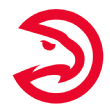After no first-round series in the Eastern Conference went more than five games, here we are in the second round with two star-studded matchups.
Can two-time MVP Giannis Antetokounmpo and the Milwaukee Bucks get past the Brooklyn Nets‘ Big Three of Kevin Durant, Kyrie Irving and James Harden? How much will the Philadelphia 76ers get out of All-NBA big man Joel Embiid, who is day-to-day with a knee injury? What does Trae Young have for an encore after the Atlanta Hawks knocked out the New York Knicks?
In the Western Conference, the LA Clippers needed seven games to overcome Luka Doncic and the Dallas Mavericks, while the Phoenix Suns stunned the defending champion Los Angeles Lakers to secure a second-round meeting with the Denver Nuggets.
MORE: Full NBA playoffs schedule, results and news

WESTERN CONFERENCE



How the Jazz got here: The biggest obstacle the top-seeded Jazz had to clear in the first round was getting All-Star Donovan Mitchell back on the floor after he missed the final five weeks of the regular season with a sprained right ankle. Utah made Mitchell a late scratch for Game 1 — much to his displeasure — and that was the Jazz’s lone loss of the series.
Mitchell didn’t show much rust once he was cleared. He averaged 28.5 points and 5.8 assists as the Jazz swept the games he played, capped with his 30-point, 10-assist performance in the closeout game against the Memphis Grizzlies.
Point guard Mike Conley was phenomenal against his former team, averaging 17.6 points and 8.6 assists per game while shooting 54.8% from 3-point range. However, his availability for the second round is uncertain after he suffered a mild strain in his right hamstring during Game 5. Conley missed nine games late in the season due to tightness in that hamstring.
How the Clippers got here: The Clippers survived despite losing their first three home games of the series against the Dallas Mavericks, winning Game 7 at Staples Center. Teams that fell in an 0-2 hole at home to open a best-of-seven series have now advanced only five out of 32 times.
In doing so, the Clippers answered questions about their ability to respond to adversity that had loomed like black clouds since LA’s bubble collapse after building a 3-1 lead over the Nuggets last postseason.
Two-time Finals MVP Kawhi Leonard had perhaps the best playoff series of his career. He became the first player since Shaquille O’Neal in the 2000 NBA Finals to average at least 30 points while shooting better than 60% from the floor in a series, according to ESPN Stats & Information research. Leonard was also the Clippers’ only good option to guard Mavs star Luka Doncic, holding him to 0.8 points per possession when Leonard was the primary defender.
Series keys: How will Rudy Gobert and the Jazz handle the Clippers’ small lineup?
The Clippers switched to that lineup midway through the first round against the Mavericks because it was their best chance to defend Doncic. It would make sense for LA to stick with it because playing five perimeter shooters forces Gobert to leave his comfort zone of the paint, mitigating the biggest strength of the Jazz’s defensive anchor.
Having five starters who can switch defensively also throws a wrench into the Jazz’s offense, which relies heavily on pick-and-rolls featuring Gobert screens. The Utah big man doesn’t have the post-up game to punish opponents for putting a smaller defender on him, so the Jazz tend to end up in more isolation situations than they’d prefer against switch-heavy defenses.
That puts an even heavier burden on Mitchell’s shoulders, especially if Conley isn’t available.
Of course, Mitchell has proved to be more than capable of carrying the Jazz offensively in the playoffs. His career postseason scoring average of 27.5 points per game ranks sixth all time (minimum 25 playoff games). He has averaged 33.5 points per game in the past two postseasons and is surrounded by more shooting than ever, creating more space for him to work when he has to go one-on-one.
The Jazz’s bigger concerns might be on the other end of the floor, particularly if Gobert can’t dominate as a rim protector due to his responsibilities guarding a 3-point threat.
Utah’s Royce O’Neale has fared relatively well defending Leonard, who has averaged 24.5 points on only 35.4% shooting from the floor in their four matchups since O’Neale became a starter. But Leonard is a frightening matchup in any playoff series, particularly coming off his dominance against Dallas.
The Jazz’s regular starting five also doesn’t feature another wing defender suited to guard Paul George. However, it’s worth noting that Joe Ingles irritated George when the All-Star scored only five points on 2-of-16 shooting in a 2018 Game 6, when the Jazz closed out the Oklahoma City Thunder.
— Tim MacMahon




How the Suns got here: It had been 11 years since the Suns last won a playoff series, but they broke the streak in just about the most emphatic way possible: beating the defending champs, who happen to be the Los Angeles Lakers, who happen to have LeBron James. As the No. 2 seed, the Suns weren’t favored in the series, and it looked iffy after a dominant Game 1 win in which Chris Paul injured his right shoulder.
Paul labored in Game 2 but steadily progressed as the Suns leaned more on their impressive youth. Devin Booker is ascending, headed for the upper tiers of superstardom, but Deandre Ayton, Mikal Bridges and Phoenix’s cupboard of youth all rose to the occasion.
But it was Booker and his epic 47-point closeout performance in Game 6 that stamped the Suns through, and also sent the message ahead that Phoenix is to be taken very seriously.
How the Nuggets got here: The Nuggets hit their road bumps before the playoffs began, with their starting backcourt injured and leaving them leaning more than ever on the likely MVP, Nikola Jokic. They cobbled together a guard group featuring 30-year-old rookie Facundo Campazzo, and a guy that went almost two months out of the league in Austin Rivers. They got a massive boost from Monte Morris, who has risen as a stable backup point guard, and second-year forward Michael Porter Jr. is starting to scratch the surface of his ridiculous potential.
They had to overcome Damian Lillard and his relentless clutch ability, outlasting one of the greatest playoff performances ever in a double-overtime Game 5 win over the Portland Trail Blazers. Without Jamal Murray and Will Barton, the Nuggets relied on their identity as tough, gritty, resilient playoff warriors, but more than anything, they just jumped on the back of Jokic.
As head coach Michael Malone said after Game 6, the Nuggets’ coaching staff could take the floor with Jokic, and he’d find a way to make them all good enough to have a chance.
Series key: A star-driven showdown
Both teams have unguardable players. It’s clear there isn’t any one player who can guard Booker right now. The Nuggets will try a collection of wings and forwards, throwing multiple looks at him with traps, blitzes and double-teams.
And on the other side, single coverage doesn’t work on Jokic either. As good as Ayton was in the opening round, albeit facing a banged-up Lakers frontcourt, he’ll face the ultimate test now. Foul trouble was a critical element for the Blazers in their coverage scheme against Jokic, and it’ll play a significant factor for the Suns. Ayton needs to be on the floor, because after him, the options for guarding Jokic don’t look so great. The Blazers tried an adjustment of going small with Robert Covington guarding Jokic, and the Suns could try a similar approach in a pinch with Jae Crowder. Smart doubles with help defense on a string is a curveball Suns head coach Monty Williams has available.
Beyond Jokic, what the Nuggets got from their role players against Portland will have to be amplified against Phoenix. The Suns have a host of talented wings and guards beyond Booker and Bridges, so the bench battle will be an intriguing undercard. Denver’s Morris was an unexpected X factor in the opening series; Phoenix’s Cameron Payne played a similar role against the Lakers.
At the core, though, this series is star-driven. Can Jokic shoulder the load once again, lifting his teammates higher while sustaining his own brilliant, efficient scoring? And can Booker continue to rise, building on his ruthless performance against the Lakers? And where does the Point God factor in — not to mention his health — taking over late in games, snaking around screens for tilted midrange magic?
— Royce Young

EASTERN CONFERENCE



How the 76ers got here: A new man calling the shots (Daryl Morey), a new head coach (Doc Rivers) and a couple of new pieces (sharpshooters Seth Curry and Danny Green), plus the Sixers’ existing questions about their quick exit in 2019-20, made for a variance of opinions on where Philadelphia would be headed once the season started. All the Sixers did was finish with the best record in the Eastern Conference with Joel Embiid having an MVP-caliber season.
The biggest obstacle the Sixers face now surrounds Embiid’s health. Embiid was diagnosed with a small tear in his meniscus and his status is being described as day-to-day. Embiid did not play in the Game 5 closeout against the Washington Wizards because of the injury. Still, Philadelphia played its way into the top seed in the East with its stellar defense — it finished second in the league in defensive rating. Moving forward without Embiid’s status solidified, however, will make this series a tougher go.
How the Hawks got here: Perhaps the biggest challenge the Hawks faced was on March 1, when they parted ways with coach Lloyd Pierce. At that time, the Hawks were 14-20 and had a 14% chance to make the playoffs, according to ESPN’s Basketball Power Index.
But after Nate McMillan took over, the Hawks stormed to a 27-11 finish in the regular season, the best winning percentage (.711) in the East in that span — just a notch better than the 76ers (.703). According to the Elias Sports Bureau, McMillan became just the fifth coach in the past 20 seasons to take over a team midseason and win a playoff series the same year.
The Hawks also struggled with health for most of the season. According to Spotrac’s injury-tracking data, Atlanta players combined to miss 278 games this season, fourth most in the league and most for any team in the 2021 playoffs. While they are still missing Cam Reddish and Brandon Goodwin, they have the rest of the rotation in place and playing big roles. DeAndre Hunter’s defense against the New York Knicks was a big reason they were able to slow down All-Star and 2020-21 Most Improved Player Julius Randle.
Series keys: Who scores for Philly, and can Trae be stopped?
Against Washington, Tobias Harris shouldered the offensive burden for Philly, averaging 25 points and 10 rebounds in five games. Ben Simmons nearly averaged a triple-double (16.8 points, 10.2 rebounds, 9.2 assists), but struggled mightily from the line (10-of-28).
Even if Philadelphia plays it as safe as possible with Embiid’s injury, it will need even more from Harris, who averaged 19.5 points and 6.8 rebounds in the regular season. To get by Atlanta, Philadelphia has to have Simmons get himself right at the free throw line.
In the regular season with Embiid sitting and Simmons, Harris, Curry and Green on the floor, Philadelphia’s defensive rating jumped to 114.8. The Sixers went 10-11 in the regular season in the games that Embiid missed.
Atlanta could put pressure on the defense the same way it did against the Knicks in the first round, but Philadelphia would be well-equipped to put size against Young on the defensive end. If Philadelphia throws Matisse Thybulle into the starting group, it would allow the Sixers to throw someone at Young who focuses the majority of his energy on the defensive end.
It’s hard to look at any of the three regular-season matchups between the teams as an indicator of what to expect in the playoffs. In the two back-to-back games in late April, the Hawks were missing Bogdan Bogdanovic and Hunter for one and those two plus Young for the other.
But as they proved against the Knicks, the Hawks won’t be pushovers. McMillan has shifted his rotations to ensure one of either Young or Bogdanovic is on the floor at all times, helping the offense tread water when Young sits — Bogdanovic can run point on the second unit with Lou Williams and provide the playmaking punch Atlanta had been missing at times.
— Andrew Lopez




How the Nets got here: The Nets were massive favorites heading into their first-round matchup with the Boston Celtics. And despite a sloppy performance in Game 3, Brooklyn never felt for a moment like it was in danger of losing the series on its way to winning in five games.
More importantly, after a regular season in which Durant, Harden and Irving played just eight games together, they spent the past couple of weeks practicing and playing, including in a hostile environment in Boston, invaluable time that will only aid Brooklyn as it heads into a titanic showdown with Milwaukee — a series that could become this year’s de facto NBA Finals.
One thing to monitor is the health of Jeff Green. While he has become a journeyman late in his career, Green’s versatility at both ends has made him a critical role player for Brooklyn, and it’s unclear how much he will be available against the Bucks with the plantar fascia strain that sidelined him for most of the first round.
But the Nets will go as far as Durant, Harden and Irving take them. And if their breeze through the first round is any indication, that could be all the way to a championship.
How the Bucks got here: When the Bucks chose to play things out over the final weekend of the regular season and ensure they would face the Miami Heat in the first round, they were chastised in many corners because they lined themselves up to take on the hardest possible opponent.
How did the Bucks respond? By producing the most shocking result of the first round, sweeping the Heat — a team that more than a few people said would knock out Milwaukee for a second year in a row — and dominating the final three games of the series. Point guard Jrue Holiday produced exactly the kind of results Milwaukee hoped he would when the Bucks swung for the fences to acquire him in the offseason. He averaged 15.3 points and 9.8 assists during the sweep.
Milwaukee’s reward is this showdown with the star-studded Nets — a matchup made more difficult by the loss of Donte DiVincenzo, as the third-year guard was lost for the playoffs with a foot injury in Game 3. That will leave coach Mike Budenholzer with an interesting choice of whom to replace him with in the starting lineup against Brooklyn. In Game 4 against Miami, the answer was Pat Connaughton.
But after the playoff disappointments of the past two years, the Bucks exorcised some demons by throttling the Heat. If they can beat the Nets, perhaps this will be the year Milwaukee finally breaks through.
Series key: Can Brooklyn handle Milwaukee’s size advantage?
In a series boasting so many stars, most would assume the most important matchup would be some combination of the six top players — Durant, Harden and Irving for Brooklyn and Antetokounmpo, Khris Middleton and Holiday for Milwaukee — going against one another.
In truth, how Brooklyn’s porous interior defense will hold up against the size and strength of Antetokounmpo and Brook Lopez inside for Milwaukee could swing this series. The Nets have banished DeAndre Jordan to the end of the bench for the past several weeks and exclusively played small against the Celtics.
Boston’s Tristan Thompson was able to wreak havoc inside and on the boards, and he’s a far less threatening presence than Lopez, let alone Antetokounmpo. Milwaukee has made a subtle shift to have Lopez get back to playing more like he did in his days with the Nets early in his career, when he was a low-post masher instead of the stretch-5 he has morphed into.
The Nets also have no clear matchup for Antetokounmpo, as Durant isn’t strong enough to guard him and Green is hurt. Blake Griffin can draw charges on him but isn’t likely to hold up over a full series.
Meanwhile, at the other end, the Bucks have to solve their own impossible problem: How do you guard all the Nets? The biggest part of that equation is who Milwaukee decides to match Holiday with between Harden and Irving. Harden is, in many ways, the engine of Brooklyn’s offense, while Irving is going to attack in isolation — few players are better suited to guard him than Holiday, one of the league’s elite defensive guards.
The problem is the Bucks have only one of him. This is where the loss of DiVincenzo will have an impact, as he’s a solid defensive guard who could’ve played heavy minutes on either Irving or Harden.
Ultimately, what’s certain about this series is it could become a classic. As it plays out, there will be all sorts of chess moves to monitor over the course of what hopefully will be seven fascinating games.
— Tim Bontemps